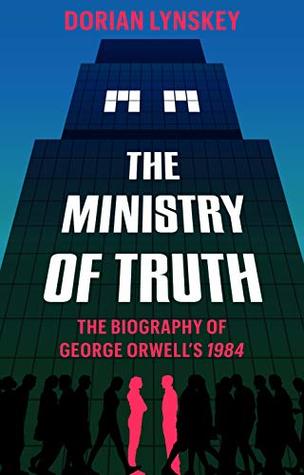More on this book
Community
Kindle Notes & Highlights
The peculiar horror of the present moment is that we cannot be sure that this is so. It is quite possible that we are descending into an age in which two and two will make five when the Leader says so . . . One has only to think of the sinister possibilities of the radio, State-controlled education and so forth, to realize that ‘the truth is great and will prevail’ is a prayer rather than an axiom.”
In the first chapter of Looking Backward, Julian observes that some of his gilded contemporaries fear “an impending social cataclysm.” This anxiety, mirrored across the Western world, inspired a vogue for post-apocalyptic novels like Richard Jefferies’s After London and Joaquin Miller’s The Destruction of Gotham —the 1880s equivalent of disaster movies.
“Everyone is kindly and reasonable, all the upholstery comes from Liberty’s, but the impression left behind is of a sort of watery melancholy.”
The future, at any rate the immediate future, is not with the “sensible” men. The future is with the fanatics. —George Orwell, Time & Tide, June 8, 1940
The impression one gets from reading Orwell’s work during this period is of a man urgently trying to clarify the relationship between fascism, communism and capitalism. He clearly preferred a fourth option—democratic socialism—but that didn’t seem to be on the table. Just before he went to Spain, he had scorned “the vulgar lie, now so popular, that ‘Communism and Fascism are the same thing.’ ” But when he read Assignment in Utopia, he felt that Stalinism, as described by Lyons, “does not seem to be so very different from Fascism.”
“The two regimes, having started from opposite ends, are rapidly evolving towards the same system—a form of oligarchical collectivism,” Orwell wrote in his review of Borkenau, anticipating the title of Emmanuel Goldstein’s book in Nineteen Eighty-Four : The Theory and Practice of Oligarchical Collectivism. “The sin of nearly all leftwingers from 1933 onwards,” he later wrote, “is that they have wanted to be anti-Fascist without being anti-totalitarian.”
the Inquisition was a very amateurish business. After all, even Torquemada only burnt two thousand people in ten years. In modern Russia or Germany they’d say he wasn’t trying.”
Another recurring theme was his frustration with the BBC: “Its atmosphere is something half way between a girls’ school and a lunatic asylum, and all we are doing at present is useless, or slightly worse than useless.” Put that on a statue. Then, in June: “The thing that strikes one in the BBC . . . is not so much the moral squalor and the ultimate futility of what we are doing, as the feeling of frustration, the impossibility of getting anything done, even any successful piece of scoundrelism.”
David Astor, the aristocratic Observer editor who was introduced to Orwell by Cyril Connolly, remembered Orwell toying with the idea of re-editing fragments of Churchill’s speeches to make it sound as if he were declaring peace, just to show how easy it was to manipulate recordings. “I think he thought that you could use propaganda machines to invent anything and to make people make speeches they hadn’t ever made,” said Astor.
The “primal traitor” Goldstein may have been modelled on Trotsky (born Lev Bronstein), but his “Chapter III: War Is Peace” owes more to Burnham than it does to Trotsky’s The Revolution Betrayed. Orwell thought that, among revolutionaries, “the longing for a just society has always been fatally mixed up with the intention to secure power for themselves.” But in the “what-if?” world of Nineteen Eighty-Four, the longing for a just society has been eliminated: “One does not establish a dictatorship in order to safeguard a revolution; one makes the revolution in order to establish the
...more


